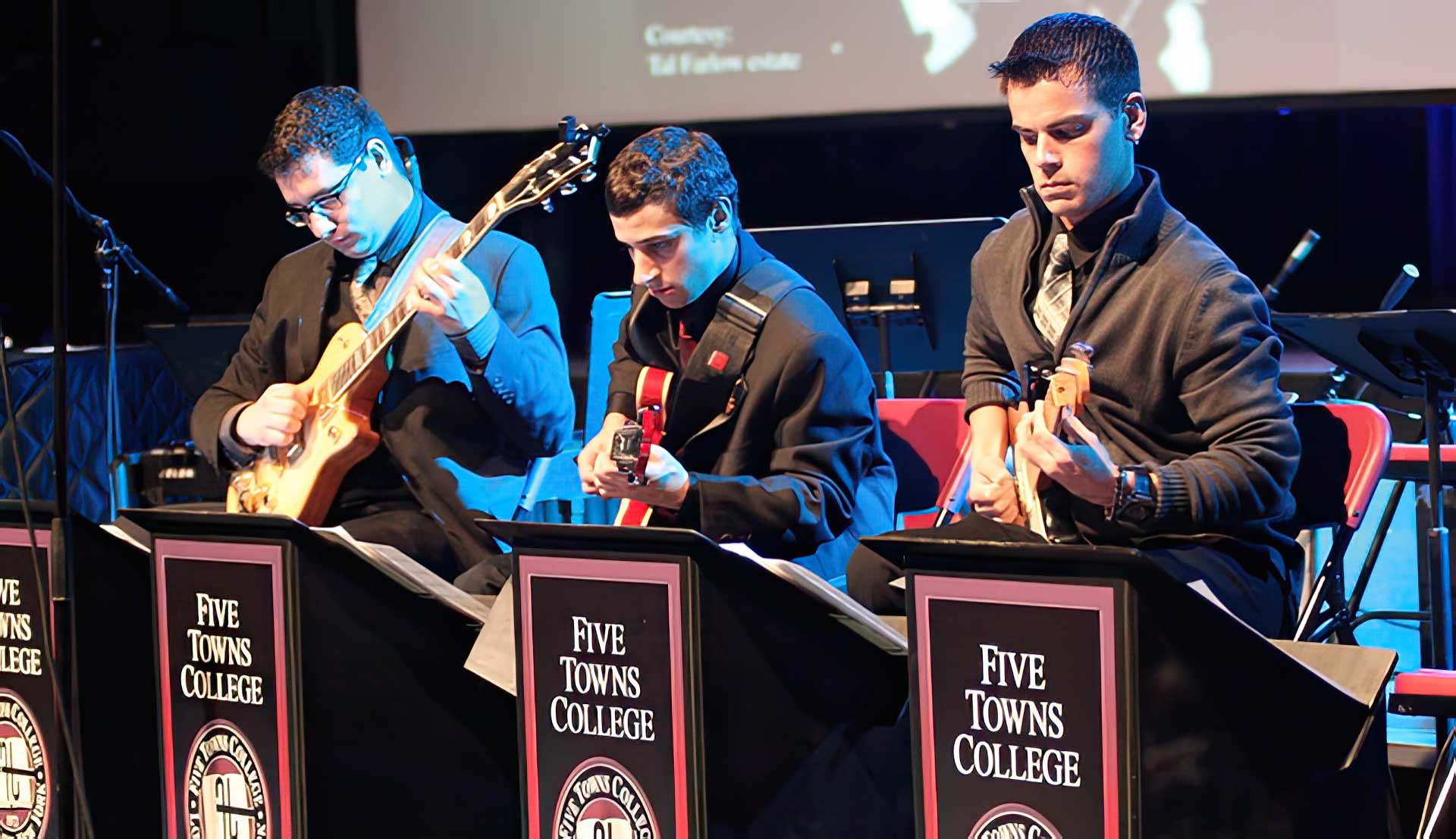Doctor of Musical Arts (D.M.A.) Degree
Overview
Five Towns College Graduate Music Division accepts prospective candidates for the Doctor of Musical Arts degree (D.M.A.). The Doctor of Musical Arts degree is granted in the areas of composition and arranging, music education, music history and literature, and performance. It requires demonstration of distinguished attainment and its the highest credential awarded in the musical arts. Learn more about our esteemed faculty by clicking here to the Catalog.
VIDEO: FTC Graduate Music Reel
Degrees Offered
Five Towns College is proud to offer four discrete programs that lead to the Doctor of Musical Arts degree. They are:
- D.M.A. in Composition/Arranging
- D.M.A. in Music Education
- D.M.A. in Music History and Literature
- D.M.A. in Music Performance
For curriculum information, click here.
Earning a Doctor of Musical Arts degree at Five Towns College requires outstanding scholarship and research culminating in a dissertation that contributes to the general fund of knowledge in the particular degree program. Further, qualified doctoral candidates must earn a minimum of 60 credits beyond the master’s level and must maintain a 3.0 G.P.A. or higher.
The Doctor of Musical Arts (D.M.A.) degree program is intended for serious students planning to work at the most advanced academic and professional levels of musical endeavor. Upon admission, you will be expected to achieve competence as musicians and scholars who can communicate effectively both orally and in written form. Furthermore, students pursuing a doctorate in music education should be able to demonstrate the ability to write concisely with clarity and prepare critiques of musical performances that reflect mature, sensitive insights into musical values.
Moreover, doctoral study requires a minimum of three or four years of graduate work. Completion of an appropriate master’s degree is prerequisite to doctoral study.
To learn about the Audition Requirements for the Doctor of Musical Arts, click here.
Key Goals for Candidates Pursuing a Doctor in Musial Arts Degree
The degree program objectives listed below must be demonstrated by candidates for graduation as a prerequisite to qualifying for the Doctor of Musical Arts degree:
- Intellectual awareness and curiosity sufficient to predict continued growth and contribution to the discipline
- Knowledge of the techniques of jazz harmony sufficient to analyze selected compositions
- Knowledge of representative literature and influential composers
- Expertise in music history, education, performance, or composition
- Expertise in the supervision of music programs
- Expertise in the application and utilization of appropriate research skills, and
- Sufficient writing and speaking skills to communicate clearly and effectively to members of the scholarly and wider communities.


